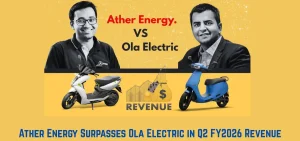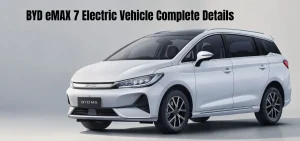A new chapter in the Philippines’ transport modernization program unfolded at the 13th Philippine Electric Vehicle Summit (PEVS), held at the SMX Convention Center, as Basic Energy Corporation (BEC) introduced its new electric jeepney variant — the BASIC GEEP. This launch underscores the nation’s accelerating push toward sustainable mobility and the electrification of public transportation.
A Step Toward Green Public Transport
BEC’s introduction of the BASIC GEEP marks its formal entry into the growing electric public transport market through its Green Energy E-Transport Program (GEEP). The initiative supports the Philippine government’s Public Utility Vehicle (PUV) Modernization Program, which aims to replace aging jeepneys with safer, cleaner, and more efficient alternatives.
Throughout the summit, the BASIC GEEP drew considerable attention from visitors and transport operators alike, signaling the rising interest in EV solutions tailored for the local commuting landscape.
Power and Performance
The BASIC GEEP is powered by a 50 kW rated electric motor (with a peak output of 110 kW) and a 66 kWh battery pack, delivering an estimated range of 180 to 200 kilometers per charge. This allows operators to complete several routes daily without the need for mid-day charging — a key advantage for urban transport fleets.
Built on a light cargo truck platform chassis supplied by an international OEM, the vehicle adopts a more robust design than traditional jeepneys. It also features IP67-rated enclosures for critical components like the motor and battery, ensuring resilience against dust and water immersion — a practical benefit given the Philippines’ challenging weather and road conditions.
Passenger Comfort and Smart Connectivity
Inside, the BASIC GEEP can accommodate 24 seated passengers and 10 standing, ensuring high capacity while maintaining comfort. It comes equipped with modern digital features, including GPS tracking, Wi-Fi connectivity, and an Automated Fare Collection System (AFCS) — aligning with the government’s push for digital payment integration and smart mobility infrastructure.

Operational Efficiency and Sustainability
BEC representatives highlighted that operators could expect a 50–60% reduction in operational costs compared to conventional diesel jeepneys. This reduction stems from lower electricity expenses, minimal maintenance requirements, and a battery leasing model aimed at reducing upfront costs.
Although specific vehicle pricing and lease terms were not disclosed, these features suggest an economically viable alternative for fleet operators transitioning to electric mobility.
Supporting Infrastructure: The Basic Recharge Network
Complementing the vehicle rollout, BEC announced plans for Basic Recharge, a network of solar-powered charging stations that will support the GEEP program. While detailed deployment timelines and station locations remain under wraps, the initiative promises to enhance the long-term sustainability and convenience of electric jeepney operations.
Looking Ahead
The BASIC GEEP enters a competitive market alongside other manufacturers vying for inclusion in the government’s modernization program. Despite challenges related to cost, financing, and operator adaptation, innovations like the GEEP underscore the industry’s determination to drive the Philippines toward a cleaner, smarter, and more energy-efficient transport future.
Related Articles:-





